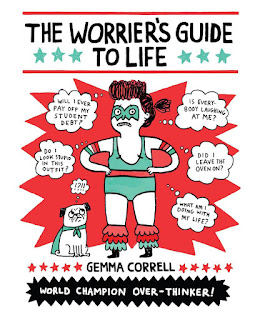Take the small book of humorous cartoons. From Arno to Garfield, it was a staple of mass-market book merchandising for most of the twentieth century, but my understanding is that books like that were mostly impulse purchases - you bought one because it was near the check-out counter, or in a display in the power aisle, or you were browsing in humor and it was face-out. And, OK, yes, bookstores still do actually exist, true - but the center of gravity for book sales these days is mostly online, where algorithms and (ever more as each year passes) paid advertising slots are the only things that can or do attract eyeballs.
(Though, as I type that, I wonder if "paid advertising slots" is the answer - that's where all those old POS placements and table placements and face-out placements came from; they were all paid for. Maybe the online world has finally caught up with the way physical selling was twenty years ago.)
I wonder this because I like small books of humorous cartoons, and I end up reading a lot of them. So I want them to continue to exist for entirely selfish reasons. And lately, I worry that Andrews McMeel is the only house seriously publishing the stuff I'm looking for, and I wonder if that's mostly because AMcM is a sister company to a vast syndication engine, and so it's more "additional revenue" than a solidly successful thing in its own right.
In any case, those are the extraneous, invasive thoughts that came to mind looking at The Worrier's Guide to Life, Gemma Correll's book of cartoons from 2015. Correll is British, and I believe when this book came out she was still based there; she has since decamped to California, as all creative people are required to for at least one phase of their careers. I see her stuff most often at The Nib (which you should be following, if you like cartoons), but she's got a varied cartooning and illustration career, with work all over the place. This is still her only solo book; she's illustrated what look like a few YA books before and since, plus, y'know, cartoons and illustrations hither and yon.
Worrier's Guide is a general collection of cartoons, on many different topics - somewhat unconventionally (though I've seen it a few times), it's organized into thematic chapters. There are eight of them, and they are large and vague - things like "Modern Malaises" and "Travels & Tribulations" and "Fashion Frenzies." Basically, categories general enough to include some vaguely related topics, tight enough so the cartoons make sense with each other and loose enough that they're not making any of the same jokes.
Obviously, I like Correll's work, or I wouldn't read a whole book of it. And I think you will, too, because I'm an optimist like that. In particular, she's really good at the cartoon that's a page of 6-10 related things, which are sometimes separate jokes on the same general topic and sometimes a funny sequence. A couple of examples from her website: Pasta Shapes for the Depressed (also in this book) and the more recent The Ladies' Mothering Blog. Things I can't link to, and you should read the book to find, include Dangerous Seafood (tuna with a knife!) and Cakes That Are Really, Really Bad for You (it starts with "Death by Chocolate" and also features "It's Probably Nothing, But You Should Get It Checked Out Anyway by Almond").
(Oh, and here's another one that I think I posted somewhere else one, and is still up on her Twitter.)
Anyway: Correll is funny. She writes funny, she draws funny, she has a good line in self-deprecation and makes good jokes about specific new things in the world, and she has a specific point of view. More people should read this book, so more books like this - by Correll and others - continue to appear.

No comments:
Post a Comment